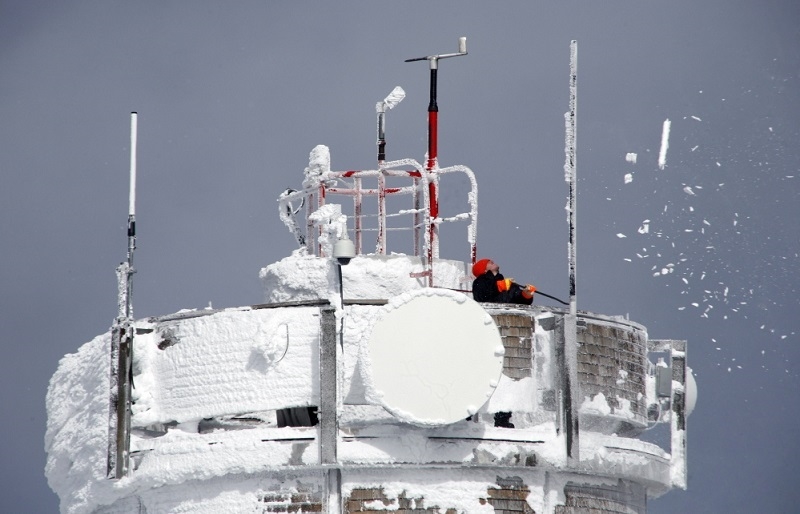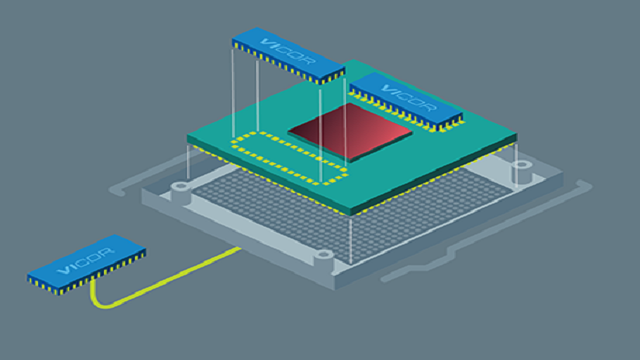Spreading Augmented reality to the Android masses, Google has launched its AR SDK which allows developers build augmented reality apps on Android. Rugged IIoT radios from Freewave are a life-saver by enabling critical weather, atmospheric and climate research in the world’s worst weather. Finally, Vicor’s new MCMs (modular current multipliers) meet the increasing demands of high performance applications such as artificial intelligence (AI) & machine learning.
Google’s New SDK Makes AR Popular On Android Smartphones
 Google is spreading AR to the Android Masses with its new software development kit (SDK) called ARCore. The software brings augmented reality capabilities to 100 million existing and most future Android phones, starting with the Samsung Galaxy S8 and Google’s own Pixel phone. Developers can start experimenting with features like Motion tracking, environmental understanding, and light estimation. The software doesn’t require any special hardware. Read more.
Google is spreading AR to the Android Masses with its new software development kit (SDK) called ARCore. The software brings augmented reality capabilities to 100 million existing and most future Android phones, starting with the Samsung Galaxy S8 and Google’s own Pixel phone. Developers can start experimenting with features like Motion tracking, environmental understanding, and light estimation. The software doesn’t require any special hardware. Read more.
Rugged IIoT Save Lives In The World’s Worst Weather
 FreeWave’s rugged 900 MHz radios are able to withstand the extreme and harsh weather conditions at the Mount Washington Observatory in New Hampshire, which is focused on critical weather, atmospheric and climate research. At MWO, FreeWave’s FGR and FGR2 radios connect a network of 28 sensors and devices on five remote weather stations and deliver data in spite of the area’s year-round harsh weather. MWO provides vital data for local government agencies to assess active conditions in order to protect the lives of crews during search and rescue operations. According to FreeWave, its low-power solutions are ideal to enable 24-hour, year-round network connectivity for the weather stations which are solar-powered and only receive sunlight 40% of the year. Read more.
FreeWave’s rugged 900 MHz radios are able to withstand the extreme and harsh weather conditions at the Mount Washington Observatory in New Hampshire, which is focused on critical weather, atmospheric and climate research. At MWO, FreeWave’s FGR and FGR2 radios connect a network of 28 sensors and devices on five remote weather stations and deliver data in spite of the area’s year-round harsh weather. MWO provides vital data for local government agencies to assess active conditions in order to protect the lives of crews during search and rescue operations. According to FreeWave, its low-power solutions are ideal to enable 24-hour, year-round network connectivity for the weather stations which are solar-powered and only receive sunlight 40% of the year. Read more.
High-current AI Processors Get A Big Boost
 Two initial Power-on-Package MCM (modular current multipliers) devices are being introduced by Vicor. The small (32mm x 8mm x 2.75mm) package and low noise characteristics of the MCMs make them suitable for co-packaging with noise-sensitive, high performance XPU’s (ASICs, GPUs and CPUs). The MCMs overcome the challenge of these XPUs’ operating currents now being measured in hundreds of Amperes, due to the increasing demands of high performance applications such as artificial intelligence (AI), machine learning and big data mining. Read more.
Two initial Power-on-Package MCM (modular current multipliers) devices are being introduced by Vicor. The small (32mm x 8mm x 2.75mm) package and low noise characteristics of the MCMs make them suitable for co-packaging with noise-sensitive, high performance XPU’s (ASICs, GPUs and CPUs). The MCMs overcome the challenge of these XPUs’ operating currents now being measured in hundreds of Amperes, due to the increasing demands of high performance applications such as artificial intelligence (AI), machine learning and big data mining. Read more.












